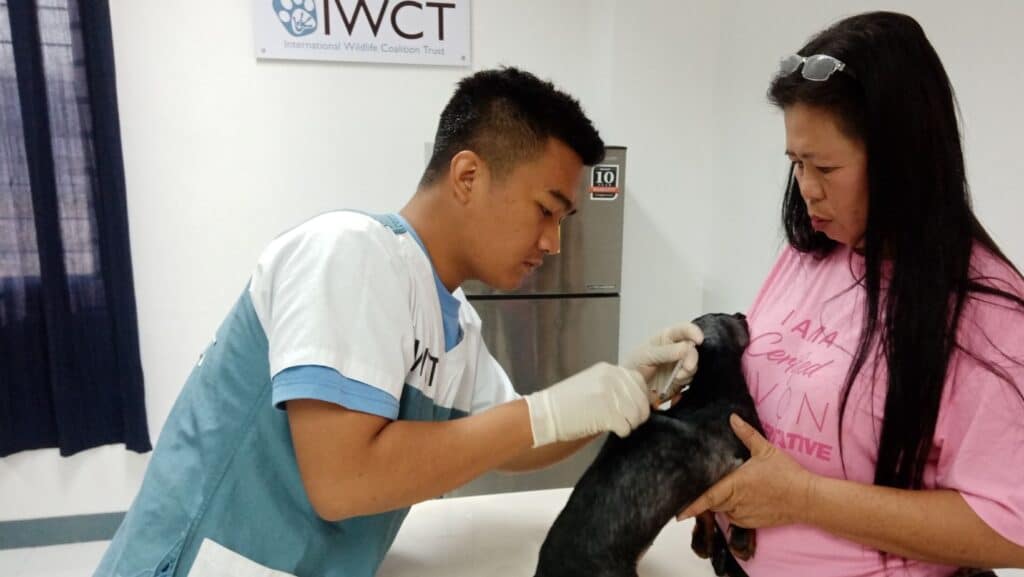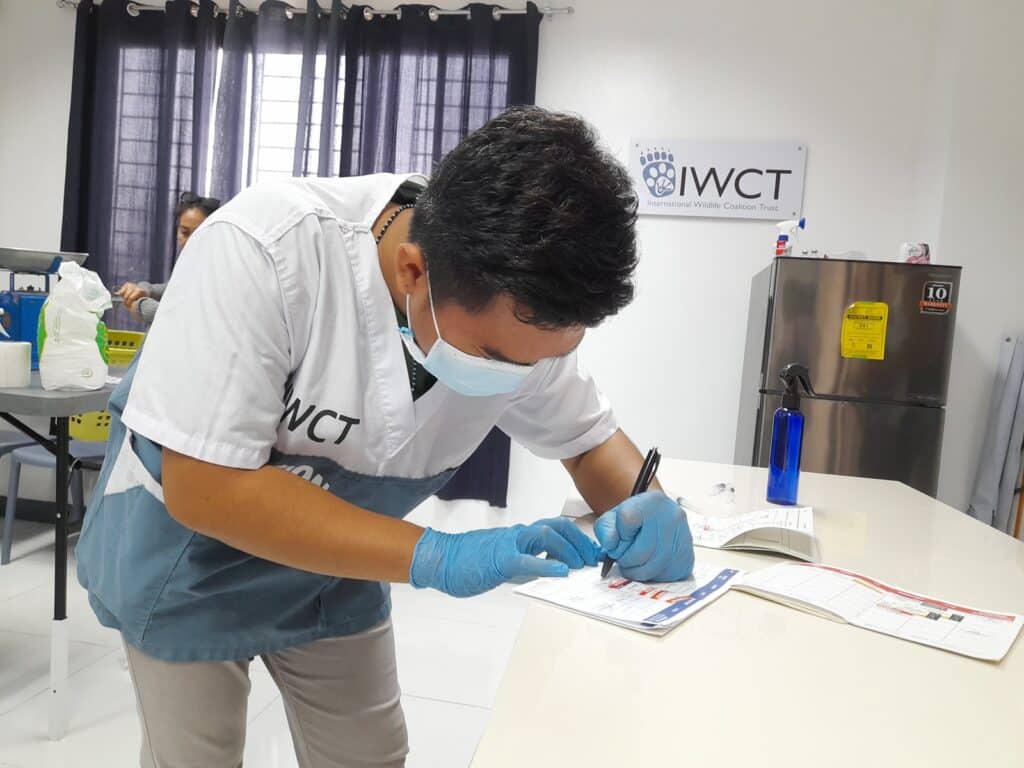Understanding Rabies: The Importance of Vaccinating Your Dogs
Rabies remains a significant public health concern in the Philippines, where it is classified as a notifiable disease. Despite ongoing efforts to eradicate this deadly virus, rabies continues to pose a threat to both humans and animals, particularly in rural and underserved areas. Understanding what rabies is, how it is transmitted, and the crucial role of vaccination in controlling its spread is vital for safeguarding our communities and beloved pets.

What is Rabies?
Rabies is a viral disease that affects the central nervous system of mammals, including humans. Once symptoms appear, rabies is almost always fatal. The virus is typically spread through the saliva of an infected animal, most commonly through bites, but can also be transmitted through scratches or open wounds that come into contact with infected saliva.
The rabies virus attacks the brain and spinal cord, leading to a progressive and fatal inflammation of the brain (encephalitis). Early symptoms in humans include fever, headache, and general weakness, which quickly progress to more severe neurological symptoms such as anxiety, confusion, paralysis, hallucinations, and hydrophobia (fear of water). Without timely medical intervention after exposure, rabies almost inevitably results in death.
Rabies in the Philippines: A Public Health Crisis
The Philippines is one of the countries in Asia where rabies remains a significant concern. According to the World Health Organization (WHO), rabies causes an estimated 200 to 300 deaths annually in the country, although the actual numbers may be higher due to underreporting, particularly in rural areas. Dogs are responsible for nearly 99% of human rabies cases in the Philippines, highlighting the urgent need for comprehensive rabies control measures.
In addition to human fatalities, rabies also poses a severe risk to animals, with thousands of dogs, cats, and other domestic animals succumbing to the virus each year. This not only affects pet owners but also places a strain on public health resources, especially in regions with limited access to veterinary care and animal control services.
How is Rabies Transmitted?
Rabies is primarily transmitted through the bite of an infected animal. When a rabid animal bites, the virus is introduced into the body through saliva and travels through the nervous system to the brain. The incubation period can vary from a few weeks to several months, depending on factors such as the site of the bite, the amount of virus introduced, and the individual’s immune response.
In the Philippines, stray and unvaccinated dogs are the main carriers of the virus. The high population of stray dogs in urban and rural areas, combined with low rates of pet vaccination, creates an environment where rabies can easily spread. Stray feeding programs, while compassionate, can inadvertently increase the risk if animals are not vaccinated or monitored for signs of illness.
Rabies Symptoms in Dogs:
Behaviour changes: Dogs with rabies may become aggressive, disoriented, or depressed. They may also lose fear of other animals and become overly playful.
Seizures: Seizures can occur as the disease progresses. However, seizures alone are not always a sign of rabies.
Paralysis: Paralysis can develop, starting in the hind legs and progressing forward. This can make it difficult for the dog to walk and may cause them to stagger.
Drooling: Dogs with rabies may drool excessively or foam at the mouth. This can be caused by difficulty swallowing.
Difficulty swallowing: Rabies can affect a dog’s ability to move their muscles, including those in their head and neck.
Fever: Dogs with rabies may develop a fever.
Chewing at the bite site: Dogs may chew at the site where they were bitten.
Loss of appetite: Dogs with rabies may show a decreased interest in food.
The Importance of Vaccinating Your Dogs
One of the most effective ways to prevent the spread of rabies is through vaccination. Vaccinating pets, particularly dogs, is not just a personal responsibility; it is a public health duty. Here’s why vaccinating your pets against rabies is crucial:
- Protects Your Pets: Rabies is 100% preventable with vaccination. By ensuring that your dog is vaccinated, you protect them from a painful and fatal disease.
- Safeguards Human Health: Since most human cases of rabies in the Philippines result from dog bites, vaccinating your pets significantly reduces the risk of transmission to people.
- Prevents Outbreaks: Vaccinated dogs act as a barrier against the spread of rabies. Herd immunity, achieved when a large percentage of the dog population is vaccinated, helps to prevent the virus from spreading in the community.
- Complies with Legal Requirements: The Philippine government mandates rabies vaccination for pets, particularly dogs. Compliance helps in the nationwide effort to eliminate rabies by 2030, a goal set in collaboration with international health organisations.
- Promotes Responsible Pet Ownership: Vaccinating your pets is part of responsible pet ownership. It shows that you are committed to their health and well-being and that you care about the safety of your community.

How Can You Help?
- Vaccinate Your Pets Regularly: Make sure your pets are up-to-date with their rabies vaccinations. Puppies should receive their first rabies shot at three months of age, followed by regular boosters as recommended by your veterinarian.
- Educate Your Community: Spread awareness about rabies and the importance of vaccination. Many cases of rabies are preventable with the right information and action.
- Support Rabies Control Programs: Participate in or support local rabies vaccination drives and spay/neuter programs, which help to reduce the population of stray dogs and control the spread of the virus.
- Avoid Contact with Stray or Wild Animals: Educate children and vulnerable members of your community to avoid stray or unfamiliar animals, especially if they appear unwell or exhibit aggressive behaviour.
- Prevent Your Dog From Roaming: Allowing your dog to roam increases it’s chances of coming into contact with an unvaccinated dog.
Conclusion
Rabies remains a critical public health issue in the Philippines, but it is preventable through concerted efforts in pet vaccination and community awareness. By vaccinating your pets, you not only protect them but also contribute to the safety of your family and the community at large. Together, we can work towards a rabies-free Philippines, saving countless lives and ensuring a safer environment for everyone.
Always only seek advice regarding rabies from a qualified professional veterinarian. In the Philippines there are still myths surrounding rabies and false claims of prevention. Such advice is dangerous to both human and animal life.
IWCT offers a free consultation from our Treatment Centre in Concepcion Tarlac every Tuesday. Here we administer the rabies vaccine to dogs and cats for free. Please come along, have your pet vaccinated and ask our team any questions you have about caring for your pet.
Let’s all do our part—vaccinate, educate, and advocate for a world without rabies. Download the PDF below and share information about rabies to your community!
